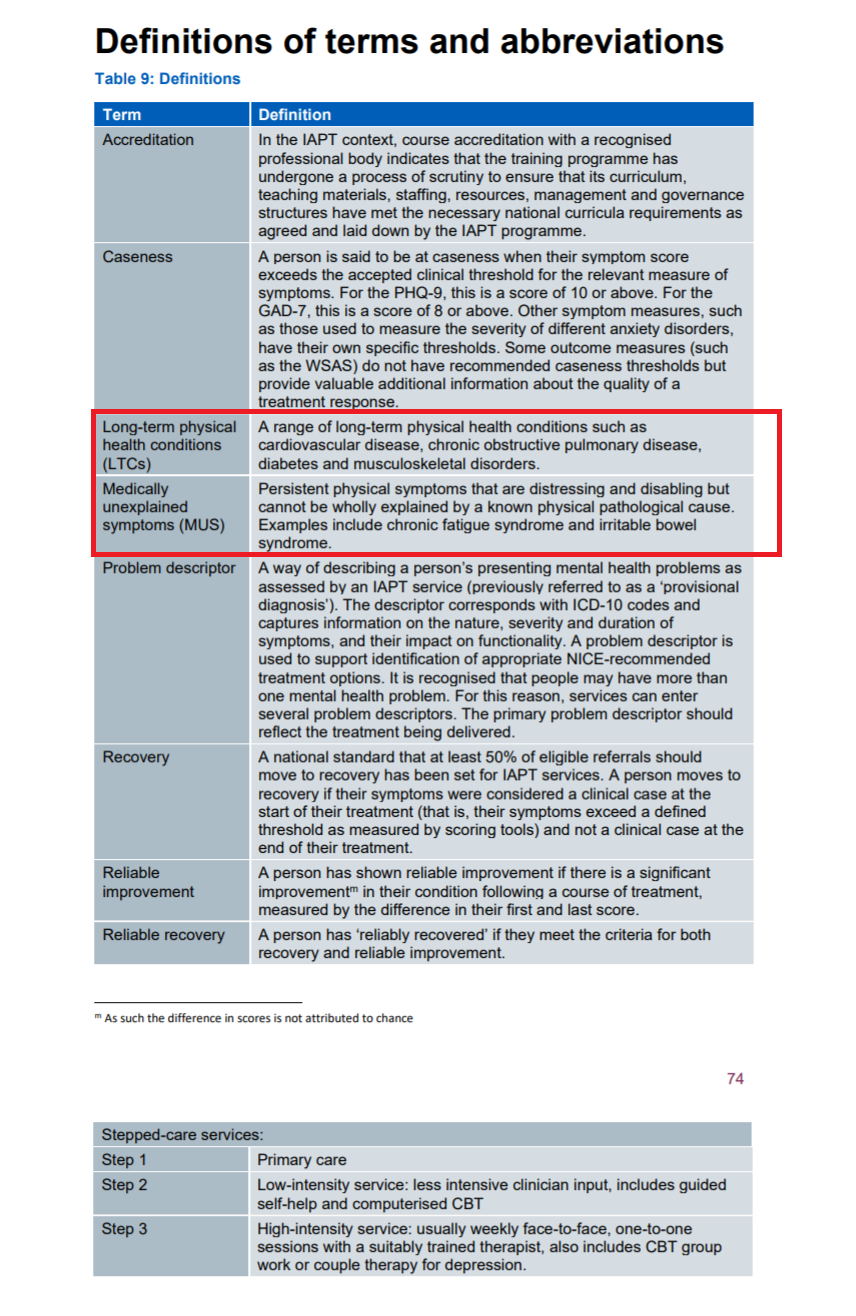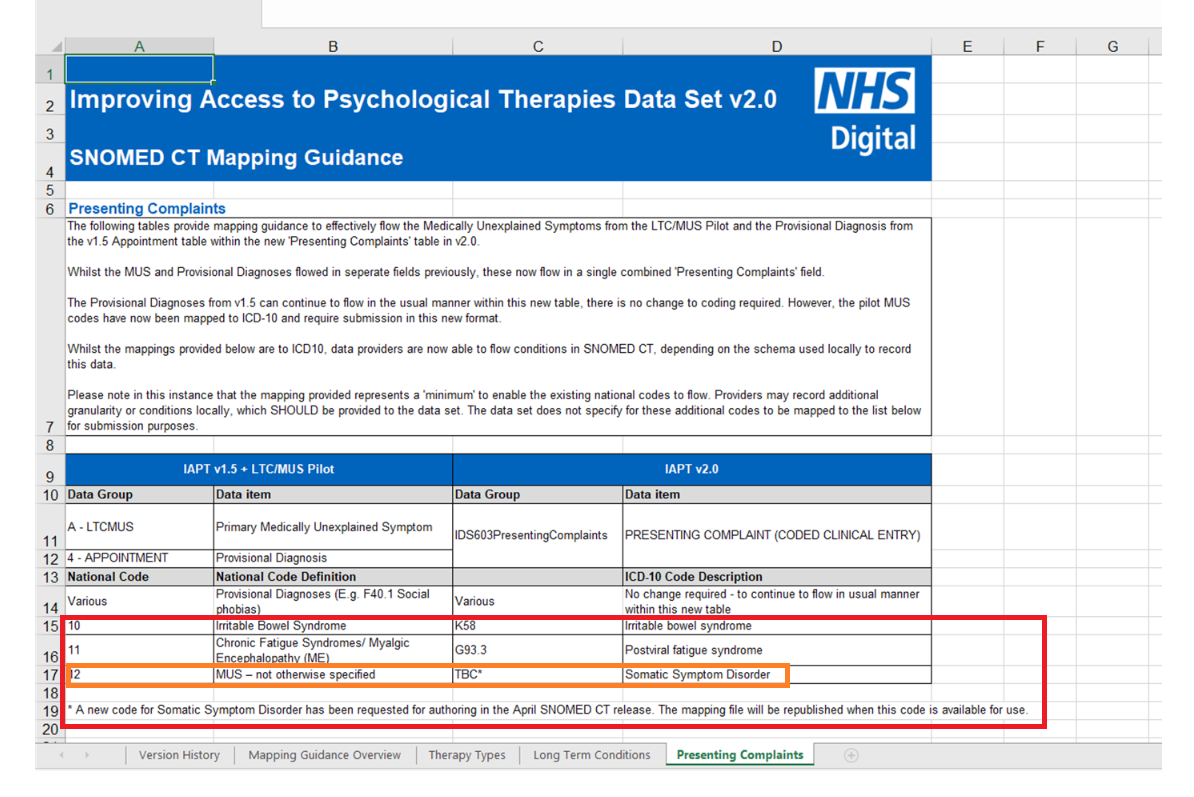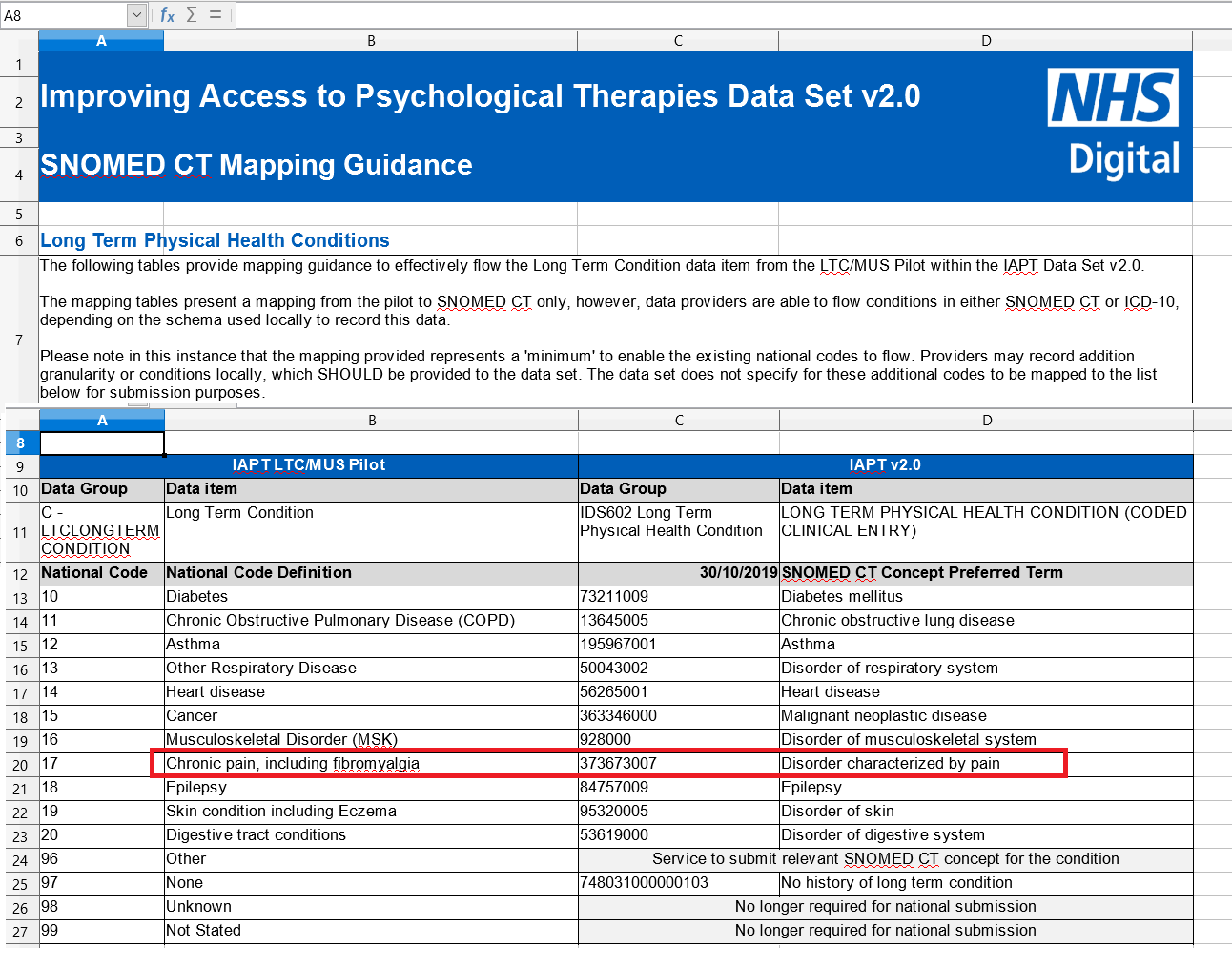Dx Revision Watch
Senior Member (Voting Rights)
This post and the following ones have been moved from this thread.
https://digital.nhs.uk/data-and-inf...to-the-iapt-data-set-v2.0---from-1-april-2020
Submitting IAPT v2.0 data
Version 2.0 of the IAPT Data Set has received approval from the Data Coordination Board for collection from 1 April 2020. All organisations that provide NHS funded IAPT services in England must submit data. This page explains the data you need to submit and how.
A Data Provision Notice (DPN) will be published before version 2.0 of the data set (April 2020) goes live. This means that all providers of NHS-funded IAPT services are required under Section 259 (5) of the Health and Social Care Act 2012 to provide the data set as specified by NHS Digital within the DPN.
How to implement the IAPT data set v2.0
Refer to the implementation guidance available from the DCB1520 information standard webpage. Section 3.5 contains a step-by-step guide for new and existing users.
What data is required from 1 April 2020
The Requirements Specification, available from the DCB1520 information standard webpage, defines the scope of the data set, what is required from providers and how NHS Digital will assess that a provider has complied with submitting the data to meet this legal requirement.
Future version – IAPT Data Set v2.0 – DCB1520 A18md 14/2019
Version 2.0 of the IAPT Data Set has received approval from the Data Coordination Board for collection from 1 April 2020.
The ISN and formal standard documentation for IAPT v2.0 is published on the DCB1520 webpage.
Update – 30 October 2019
A corrigendum has been published on the DCB1520 webpage to provide notice of corrections to version 2.0 of the Improving Access to Psychological Therapies (IAPT) Data Set. The corrections relate to:
Document Current version Last updated
IAPT v2.0 Technical Output Specification 2.0.18 13 December 2019
IAPT v2.0 Data Model 2.0.15 18 October 2019
IAPT v2.0 User Guidance 1.1 13 December 2019
Mapping guidance from v1.5 to v2.0 1.0 4 September 2019
IAPT v2.0 SNOMED CT mapping 3.0 13 December 2019
IAPT v2.0 System Conformance Checklist 2.0.13 29 October 2019
Pilot data guidance
Version 2.0 now contains all of the necessary data requirements for the Employment Advisers and integrated health pilots collections, so these requirements will no longer be detailed in separate specifications.
https://digital.nhs.uk/data-and-inf...to-the-iapt-data-set-v2.0---from-1-april-2020
Submitting IAPT v2.0 data
Version 2.0 of the IAPT Data Set has received approval from the Data Coordination Board for collection from 1 April 2020. All organisations that provide NHS funded IAPT services in England must submit data. This page explains the data you need to submit and how.
A Data Provision Notice (DPN) will be published before version 2.0 of the data set (April 2020) goes live. This means that all providers of NHS-funded IAPT services are required under Section 259 (5) of the Health and Social Care Act 2012 to provide the data set as specified by NHS Digital within the DPN.
How to implement the IAPT data set v2.0
Refer to the implementation guidance available from the DCB1520 information standard webpage. Section 3.5 contains a step-by-step guide for new and existing users.
What data is required from 1 April 2020
The Requirements Specification, available from the DCB1520 information standard webpage, defines the scope of the data set, what is required from providers and how NHS Digital will assess that a provider has complied with submitting the data to meet this legal requirement.
Future version – IAPT Data Set v2.0 – DCB1520 A18md 14/2019
Version 2.0 of the IAPT Data Set has received approval from the Data Coordination Board for collection from 1 April 2020.
The ISN and formal standard documentation for IAPT v2.0 is published on the DCB1520 webpage.
Update – 30 October 2019
A corrigendum has been published on the DCB1520 webpage to provide notice of corrections to version 2.0 of the Improving Access to Psychological Therapies (IAPT) Data Set. The corrections relate to:
- inclusion of an Integrated IAPT-LTC indicator
- correction to an error in the format listed for a data item
- amendment to group notes for IDS004EmpStatus
- amendment to UID for a data item
Document Current version Last updated
IAPT v2.0 Technical Output Specification 2.0.18 13 December 2019
IAPT v2.0 Data Model 2.0.15 18 October 2019
IAPT v2.0 User Guidance 1.1 13 December 2019
Mapping guidance from v1.5 to v2.0 1.0 4 September 2019
IAPT v2.0 SNOMED CT mapping 3.0 13 December 2019
IAPT v2.0 System Conformance Checklist 2.0.13 29 October 2019
Pilot data guidance
Version 2.0 now contains all of the necessary data requirements for the Employment Advisers and integrated health pilots collections, so these requirements will no longer be detailed in separate specifications.
Last edited by a moderator:




